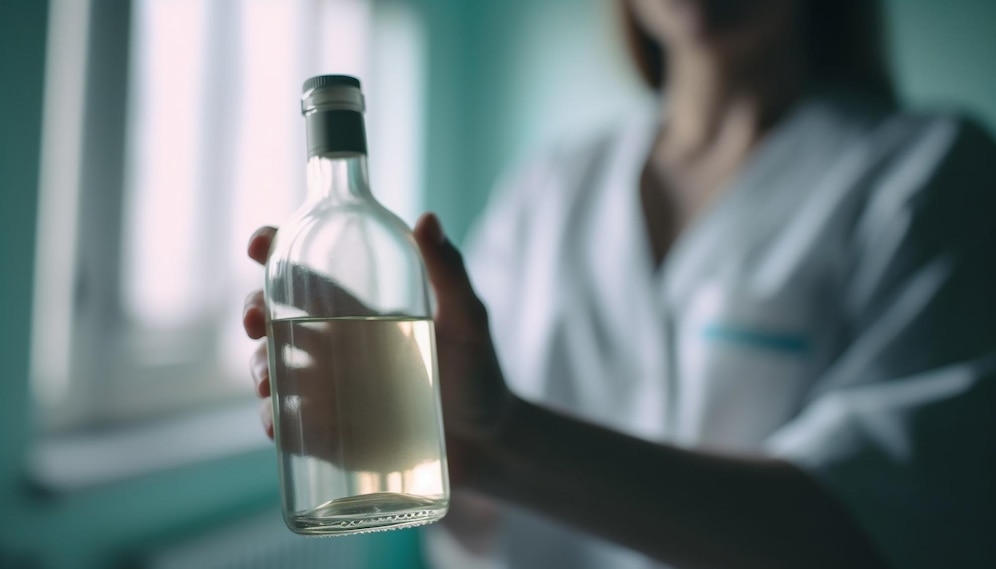Drug and Alcohol Detoxification in Baltimore: Safe and Comfortable Withdrawal
Detoxification is a critical first step in overcoming addiction to drugs and alcohol. In Baltimore, finding a detox facility that offers a safe, supportive, and comfortable environment can make a significant difference in your recovery journey. Couples Rehabs is committed to providing comprehensive care in the heart of Baltimore, ensuring that individuals and couples can begin their recovery with the confidence that they are in expert hands. In this article, we will explore the detoxification process, why it is essential, and how Couples Rehabs in Baltimore is helping individuals and couples achieve long-term sobriety.
Introduction to Drug and Alcohol Detoxification
What is Detoxification?
Drug and alcohol detoxification is the process of clearing toxic substances from the body, primarily through medical intervention. When someone is dependent on drugs or alcohol, their body becomes accustomed to functioning with these substances. When the person stops using, withdrawal symptoms can occur, making the detox process both physically and emotionally challenging.
Detox is the first step in the rehabilitation process, helping individuals manage withdrawal symptoms and ensuring that the body is free of harmful substances before entering into further addiction treatment programs. In Baltimore, Couples Rehabs provides medically supervised detox services that help minimize discomfort and risk during this crucial stage of recovery.
The Importance of Detox for Addiction Recovery
Why is Detox Necessary?
The body builds a tolerance to substances like alcohol, opioids, and other drugs over time. When usage is stopped abruptly, the brain and body need time to readjust, leading to withdrawal symptoms that can range from mild to life-threatening, depending on the substance and the severity of the addiction. Detox provides the safest environment for managing these symptoms, ensuring that individuals remain safe throughout the process.
At Couples Rehabs in Baltimore, detox programs are designed to provide compassionate care, combining medical supervision with psychological support. This ensures that clients not only go through detox safely but are also prepared mentally and emotionally for the next phase of their treatment.
Medical vs. Social Detox: What’s the Difference?
There are two primary forms of detox: medical and social. Medical detox involves the use of medications and medical monitoring to manage withdrawal symptoms. It is often recommended for individuals with severe addictions, where withdrawal can pose significant health risks. Social detox, on the other hand, does not involve medications and instead focuses on providing emotional and psychological support in a structured environment.
Couples Rehabs in Baltimore offers medical detox services that are tailored to the specific needs of each individual. For those who require additional medical intervention, experienced professionals are available around the clock to ensure safety and comfort.
The Detoxification Process at Couples Rehabs in Baltimore
Step 1: Assessment and Evaluation
Every individual who enters a detox program at Couples Rehabs in Baltimore begins with a comprehensive assessment. This evaluation includes a medical history, substance use history, and an assessment of mental health status. This initial evaluation helps determine the level of care needed, the potential for withdrawal symptoms, and any co-occurring mental health issues that might require treatment during detox.
The assessment phase is crucial for ensuring a personalized detox plan. Couples Rehabs places a strong emphasis on individualized care, ensuring that each client’s unique needs are addressed.
Step 2: Stabilization
Stabilization is the second step in the detox process. During this phase, the individual undergoes detoxification under the supervision of medical professionals. Depending on the substance, withdrawal symptoms can include nausea, vomiting, tremors, seizures, and even hallucinations. To manage these symptoms, medications may be prescribed to alleviate discomfort and prevent complications.
Couples Rehabs in Baltimore provides 24/7 medical monitoring during the stabilization phase. This level of care ensures that clients are as comfortable as possible while going through the most physically challenging part of detox.
Step 3: Preparing for Addiction Treatment
Detox is just the beginning of the recovery process. After the body has rid itself of toxic substances, the mind must begin the healing process. At Couples Rehabs in Baltimore, once detox is complete, clients are prepared for the next phase of treatment. This includes transitioning into inpatient or outpatient rehab programs, depending on their individual needs.
Clients at Couples Rehabs are given support and guidance as they move from detox into a structured treatment program that includes therapy, counseling, and support for co-occurring disorders.
Types of Detox Programs at Couples Rehabs in Baltimore
Alcohol Detox
Alcohol detox is one of the most challenging forms of detox due to the severity of withdrawal symptoms that can occur, including delirium tremens (DTs), seizures, and severe anxiety. At Couples Rehabs in Baltimore, alcohol detox programs are designed to provide intensive medical support to ensure that clients can safely manage their withdrawal symptoms.
Medications such as benzodiazepines may be used to manage symptoms and prevent complications. Throughout the process, clients are closely monitored by medical staff to ensure safety.
Opioid Detox
Opioid addiction is one of the most common forms of substance abuse in Baltimore, and detoxing from opioids can be particularly difficult due to the intense cravings and withdrawal symptoms that occur. Symptoms can include muscle aches, restlessness, anxiety, and gastrointestinal distress.
At Couples Rehabs, opioid detox programs combine medical management with behavioral therapy to address both the physical and psychological aspects of addiction. Medications like methadone, buprenorphine, or naltrexone may be used to reduce cravings and withdrawal symptoms, making the detox process more manageable.
Benzodiazepine Detox
Detoxing from benzodiazepines, such as Xanax or Valium, requires careful medical supervision due to the risk of severe withdrawal symptoms, including seizures. Couples Rehabs in Baltimore provides a specialized benzodiazepine detox program that helps individuals safely taper off these drugs under medical supervision.
The detox process for benzodiazepines typically involves a gradual reduction of the drug to prevent dangerous withdrawal symptoms. This tapering process ensures that clients can detox safely while minimizing discomfort.

Safety and Comfort During Detox at Couples Rehabs
Medical Supervision
Safety is a top priority during the detox process. At Couples Rehabs in Baltimore, clients are closely monitored by a team of experienced medical professionals, including doctors, nurses, and addiction specialists. This ensures that any complications are addressed immediately, reducing the risk of serious withdrawal symptoms.
Comfortable Environment
In addition to medical care, Couples Rehabs in Baltimore strives to provide a comfortable and supportive environment for clients undergoing detox. The facility is designed to offer a peaceful atmosphere, allowing individuals to focus on their recovery without distractions. Clients have access to private or shared rooms, nutritious meals, and various holistic therapies, such as yoga and meditation, to help ease the detox process.
Emotional and Psychological Support
Detox is not just a physical process; it also involves significant emotional and psychological challenges. At Couples Rehabs in Baltimore, clients are offered counseling and emotional support throughout detox. Therapists and counselors are available to help individuals process their emotions, manage anxiety, and prepare for the next stages of their recovery.
The Role of Couples Therapy in Detox
Strengthening Relationships During Recovery
One of the unique aspects of Couples Rehabs in Baltimore is its focus on couples who are undergoing addiction treatment together. Detox can be an emotionally charged experience, and having the support of a partner can provide additional comfort during this challenging time.
Couples therapy is integrated into the detox process, allowing both partners to address their individual addictions while also working on relationship dynamics. This approach helps strengthen the bond between partners and provides a foundation for long-term recovery as a couple.
Building Healthy Communication Skills
Detox is just the beginning of the recovery journey, and strong communication is essential for lasting sobriety. Couples Rehabs in Baltimore incorporates communication skills training into the detox and treatment process. Couples learn how to support each other through their individual recoveries, navigate challenges together, and build healthier, more fulfilling relationships.
What to Expect After Detox at Couples Rehabs in Baltimore
Transitioning to Inpatient or Outpatient Rehab
Detox alone is not enough to maintain long-term sobriety. After detox, individuals must continue their recovery in a structured treatment program. Couples Rehabs in Baltimore offers both inpatient and outpatient rehab options, allowing clients to choose the program that best fits their needs.
Inpatient rehab provides a more immersive experience, where clients stay at the facility and participate in daily therapy and support sessions. Outpatient rehab offers flexibility for those who need to maintain work or family obligations while receiving treatment.
Ongoing Support for Long-Term Sobriety
Recovery is a lifelong process, and Couples Rehabs in Baltimore is committed to providing ongoing support to clients even after they complete detox and rehab. Alumni programs, support groups, and aftercare planning are all part of the comprehensive services offered at Couples Rehabs.
Clients are encouraged to stay connected with their support networks and participate in aftercare programs to reduce the risk of relapse and maintain their sobriety over the long term.
Conclusion
Drug and alcohol detoxification is the first crucial step toward recovery from addiction. At Couples Rehabs in Baltimore, individuals and couples can receive medically supervised detox services in a safe, supportive, and comfortable environment. With a focus on personalized care, emotional support, and ongoing recovery services, Couples Rehabs helps clients begin their journey to sobriety with confidence.
If you or a loved one are struggling with addiction in Baltimore, Couples Rehabs is here to help. Detox can be a challenging process, but with the right support and care, it can also be the first step toward a healthier, happier future.






Recent Comments